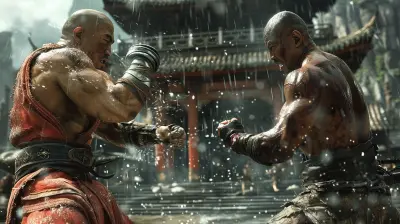PC vs Console: The Origins of the Eternal Debate
29 June 2025
Let’s be honest—if you’re into gaming, the words "PC vs Console" have probably stirred up a heated argument or two in your life. Whether you're kicking back with a controller on the couch or glued to your desk with a mouse and keyboard, the debate just refuses to die. But have you ever wondered where it all began? Why are gamers so passionate about this? And which side has the better bragging rights?
Let’s take a step back, fire up the nostalgia, and trace the roots of this never-ending rivalry to truly understand why it still rages on.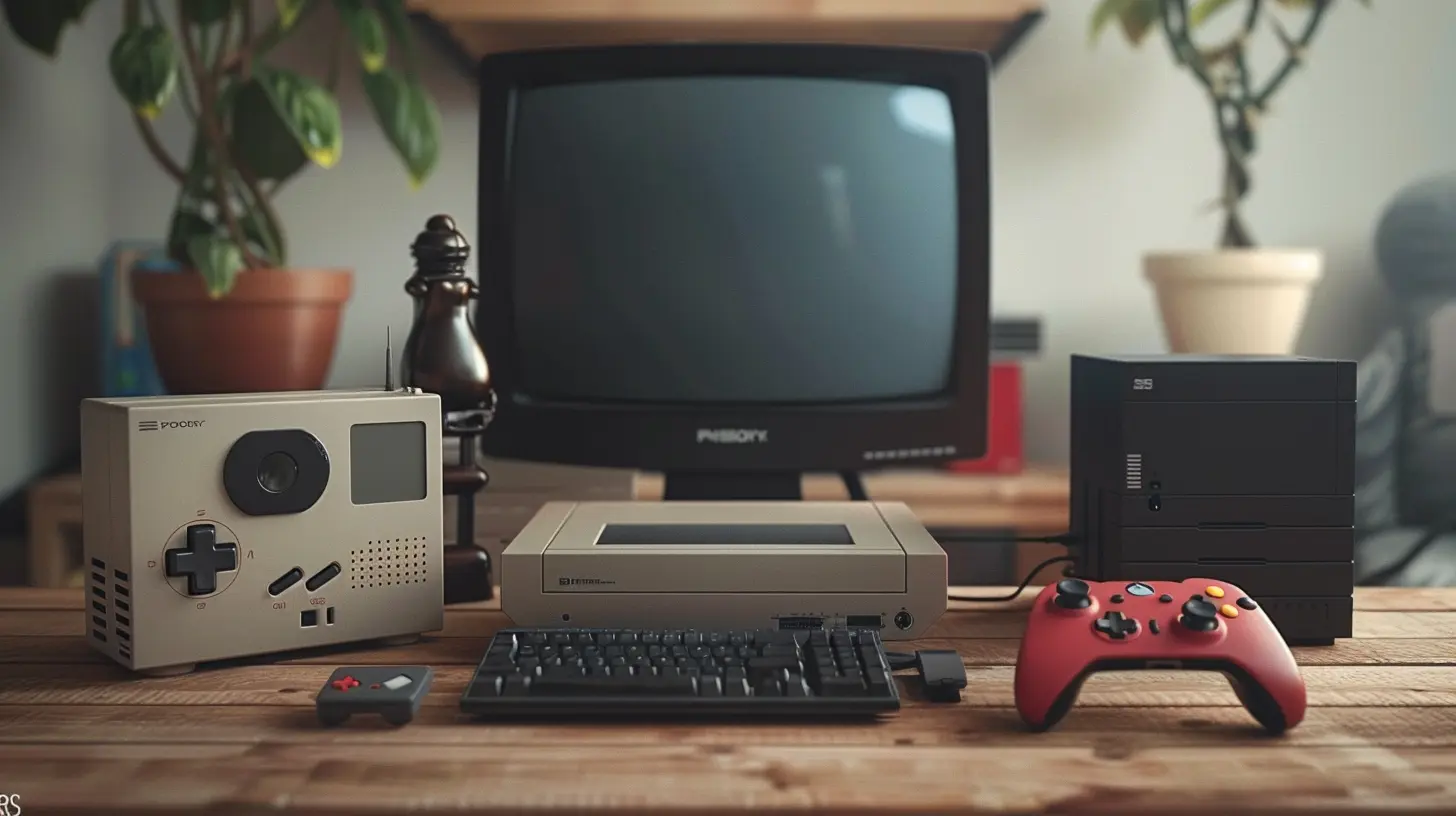
A Trip Down Memory Lane – Where It All Started
Picture it: the early 1980s. Gaming was just starting to catch fire. On one side, you had the mighty home consoles—Atari, NES, and Sega were the kings of the living room. Simple setups. Pop in a cartridge, and boom—you were saving princesses or smashing blocks in seconds.On the flip side, you had early PCs like the Commodore 64 and Apple II. They weren’t built specifically for gaming, but clever developers were already pushing these machines to create immersive worlds using floppy disks and basic coding magic.
This is where it all began.
The Key Difference? Purpose.
Right out of the gate, consoles were built for gaming. PCs, meanwhile, were jacks-of-all-trades that just happened to game.That’s where the divide started. Do you want a machine that’s dedicated to play, or one that works hard and plays harder?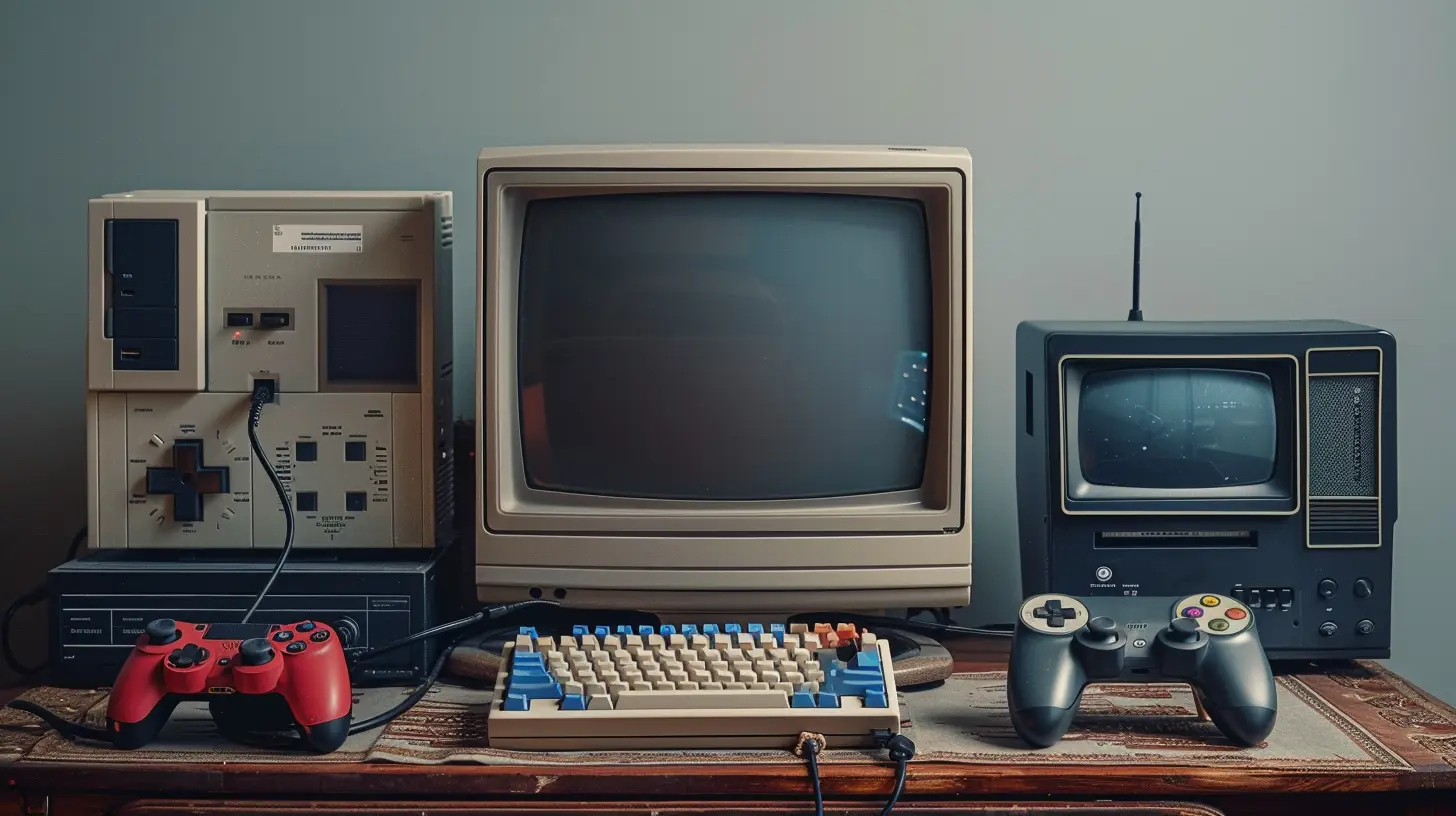
The Rise of Console Culture
Let’s talk about accessibility.Consoles were the favorite for one simple reason—they were plug-and-play. No drivers to install, no system requirements to meet, no hunting Reddit threads to fix bugs.
It was as simple as:
1. Buy game
2. Insert game
3. Play game
Games like "Super Mario Bros." and "Sonic the Hedgehog" helped create a fun, family-friendly fanaticism. The console experience wasn’t just about playing games, it was about gathering around the TV with popcorn, friends, siblings, and plenty of trash talk.
The Couch Co-Op Era
Consoles also dominated the local multiplayer scene. Remember the split-screen battles in "GoldenEye 007" or "Halo"? Those moments weren’t just gameplay—they were core memories. Consoles brought people together, physically, shoulder-to-shoulder, yelling and laughing.This social nature began to define the console experience. It was all about fun with friends, in real-time, right there with you.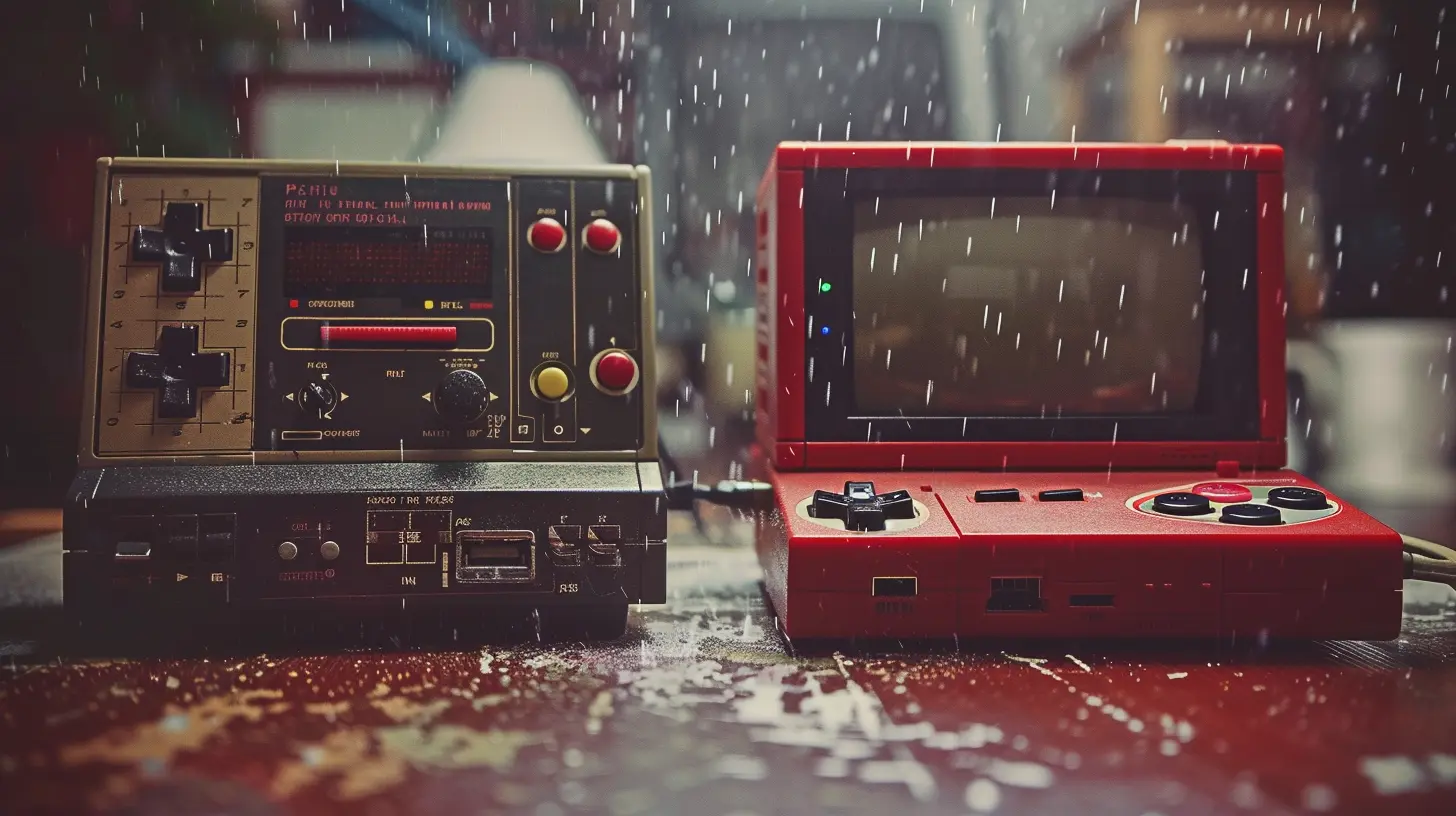
Meanwhile, in the Land of PC Gaming…
While consoles were taking over living rooms, PCs were evolving at a crazy pace.The PC scene wasn’t about simplicity—it was about options. The games were more complex, the graphics were sometimes better, and modding? Oh man, the modding scene was wild.
From classic real-time strategy titles like "StarCraft" to immersive RPGs like "Baldur’s Gate" and "The Elder Scrolls," PCs offered a deeper, more customizable experience.
The Birth of the Master Race
Yes, we’ve all heard the term "PC Master Race" floating around. It started as a joke, but it caught fire because well, a lot of PC enthusiasts felt their machines offered the ultimate gaming experience.Why? Because you could:
- Upgrade your hardware
- Fine-tune your settings
- Choose between keyboard/mouse or controllers
- Dive into indie titles not available on consoles
- Join massive online mod communities
It wasn’t just gaming—it was tinkering, building, and owning your experience.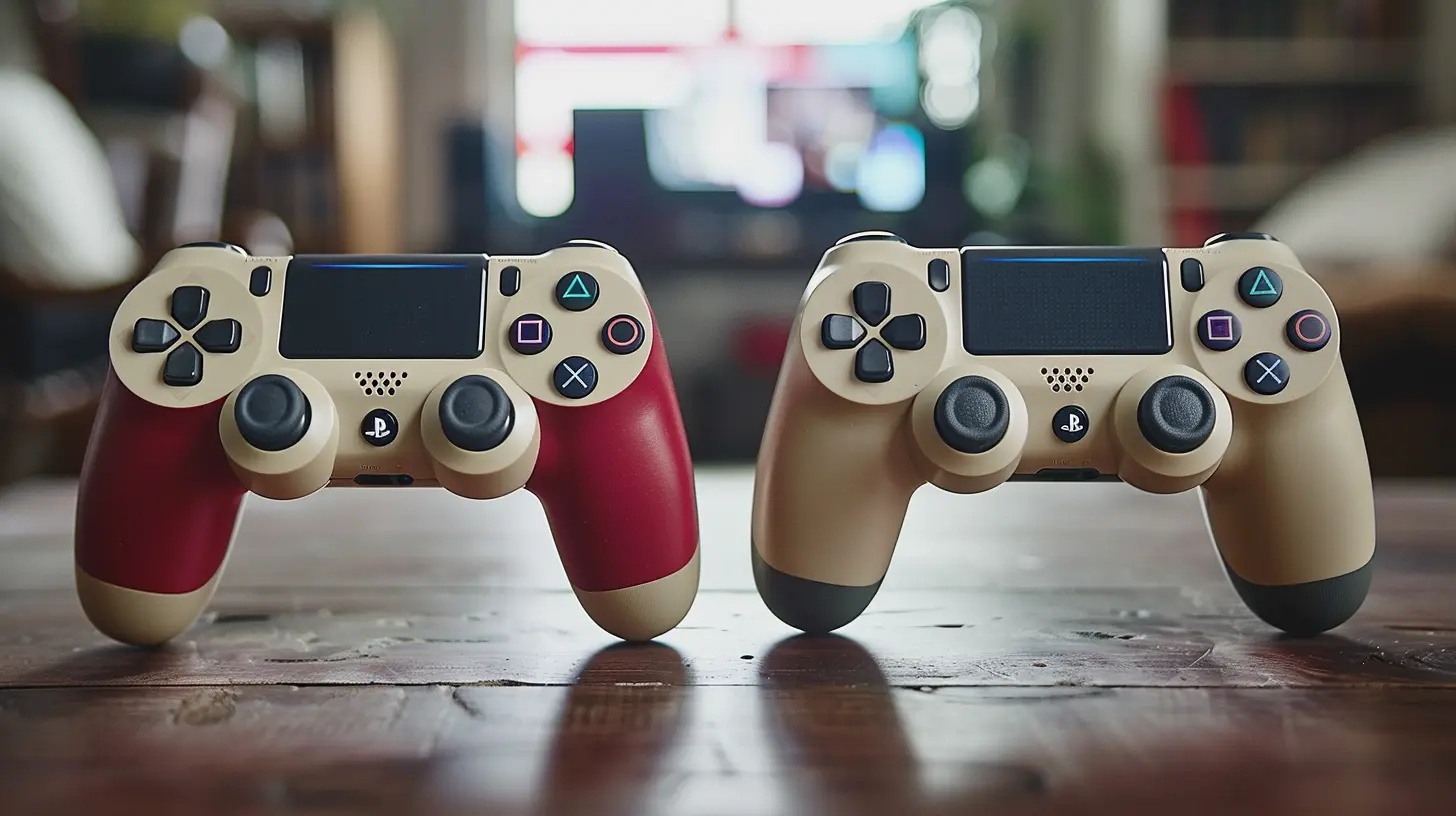
The Graphics and Performance Tug-of-War
Let’s get technical for a hot minute.One major talking point in the PC vs Console war has always been performance. PCs typically have the upper hand here, especially if you’re investing in powerful graphics cards, fast memory, and high-refresh-rate monitors.
Frames per second? PCs win.
Ray tracing? PCs had it first.
4K gaming? PCs were doing it while consoles were still dreaming about it.
That said, consoles have closed the gap massively. Modern consoles like the PS5 and Xbox Series X pack some serious horsepower. They deliver stunning graphics with little to no hassle, at a relatively affordable price.
Cost vs Customization
Here’s where things get spicy. Console fans argue their machines offer high performance at a fraction of the cost of a high-end PC.PC fans clap back with: “Yeah, but I can upgrade my rig over time and get whatever specs I want.”
And guess what? Both sides are right.
Consoles are the budget-friendly powerhouse. PCs are for gamers who want more control and flexibility.
Online Services and Ecosystems
Let’s talk infrastructure—online play, digital stores, and ecosystems.Consoles Get Serious About Online
Xbox Live and PlayStation Network revolutionized online console gaming. Suddenly, you weren’t just playing games on a disc—you were playing with people around the world, accessing digital stores, and downloading games without stepping outside.Subscription services like Xbox Game Pass and PlayStation Plus now offer incredible value with libraries of games for a flat fee, blurring the line between console and PC even more.
Steam and Beyond
Meanwhile, PC gamers had Steam.Valve’s platform blew the doors open, making it easier than ever to build a digital library, grab flash sales (70% off? Yes, please!), and connect with gaming communities.
Now we also have the Epic Games Store, GOG, and others competing in the space.
PCs offer more freedom in how you buy and play, while consoles offer a more curated, easier-to-digest package.
Mobility and Form Factor
Let’s not ignore the elephant in the room: convenience.Consoles are compact, minimal, and easy to move. Want to take your console to your buddy’s house? Done. Setup is quick, and they’re designed to work beautifully with big-screen TVs.
PCs? Well… that depends.
Sure, gaming laptops exist, but a full gaming rig? That’s not exactly travel-friendly. Plus, setup can be a process, especially if you're dealing with cable management or multiple monitors.
Want to play across the house from your setup? That usually needs some tech wizardry unless you’re using cloud gaming, which is still finding its footing.
Game Libraries: Exclusive Wars
Another hill people are willing to die on—games.Consoles and Their Crown Jewels
Console makers know the power of exclusivity. They drop jaw-dropping titles you can’t play anywhere else, from “The Last of Us” to “God of War” and “Spider-Man.” Nintendo swings in with “Zelda,” “Mario,” and “Animal Crossing,” creating experiences tailored to their systems.These exclusives aren’t just games—they’re system-sellers.
Console fans proudly point to these as proof that they’re getting experiences no PC gamer can access (unless the game gets ported years later).
PC’s Hidden Gems and Flexibility
PC gamers counter with another kind of library—massive, diverse, and brimming with indie titles and experimental games.Plus, let’s not forget emulation. With the right setup, PC users can play retro games from dozens of platforms, often with upscaled graphics and mod support.
Mods, by the way? That’s like adding hot sauce to every game. It just makes everything better.
The Evolution Towards Unity: Cross-Play and Cloud Gaming
Here’s the plot twist the debate didn’t see coming—consoles and PCs are starting to play nice.Cross-play is more common now, meaning your console buddy can join your PC lobby and frag some enemies together.
Games like Fortnite, Call of Duty: Warzone, and Minecraft have helped bridge the gap.
Cloud gaming is nudging the industry even closer. Services like Xbox Cloud Gaming and NVIDIA GeForce Now let you stream games across platforms and hardware. Suddenly, the device becomes less important. The game is what matters.
So, Who Wins?
Here’s the truth: Nobody has to win. And that’s the beauty of it.PCs and consoles offer different strengths and experiences. It’s not about one being better—it’s about what’s better for you.
Want simplicity, exclusives, and a laid-back gaming setup? Console’s got your back.
Want ultimate control, high performance, and endless customization? PC is calling your name.
There’s no "right" answer—just preferences, personalities, and playstyles.
A Final Word
The PC vs Console debate isn’t really about the machines. At its heart, it's about passion.It’s about people who love gaming enough to defend it, to geek out over specs or gush over a new exclusive title.
So next time you find yourself in the middle of a "which one is better" chat, remember this: you’re not enemies. You’re just two sides of the same coin—gamers who love the thrill of play.
And at the end of the day, isn't that what matters most?
all images in this post were generated using AI tools
Category:
Gaming HistoryAuthor:

Brianna Reyes
Discussion
rate this article
2 comments
Katherine Edwards
PC gamers say they’ve got ‘infinite upgrades,’ while console fans are just happy their systems don’t need a degree in engineering. Can’t we all just play and snack?
October 29, 2025 at 5:28 AM

Brianna Reyes
Absolutely! At the end of the day, gaming is about enjoyment, whether through endless upgrades or plug-and-play convenience. Let’s celebrate our different preferences and just enjoy the games together!
Otis Erickson
Both platforms offer unique experiences; preferences often come down to personal taste and gaming style.
July 16, 2025 at 4:15 AM

Brianna Reyes
Absolutely! Each platform has its strengths, and ultimately, it’s about what resonates with individual gamers.


